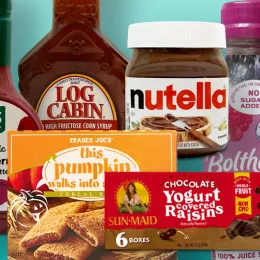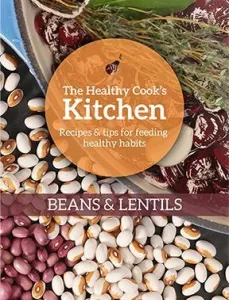Saturated fats: the big picture

Lowering your LDL (“bad”) cholesterol cuts your risk of a heart attack. How to do it? Replace saturated fats (red meat, cheese, butter, coconut oil, fatty sweets, etc.) with unsaturated fats (oil, salad dressing, mayo, nuts, fish, avocado, etc.).
How saturated fat harms the heart
Ignore headlines like “Butter is Back” and claims that saturated fat isn’t as bad as researchers once thought. Some of those headlines were triggered by studies with serious flaws.
A 2017 American Heart Association panel reviewed the evidence on which fats in foods raise—and which lower—the risk of cardiovascular disease (CVD).
The experts’ findings: “We conclude strongly that lowering intake of saturated fat and replacing it with unsaturated fats, especially polyunsaturated fats, will lower the incidence of CVD.”
“The evidence that saturated fat causes atherosclerosis and heart disease is compelling,” says Frank Sacks, professor of cardiovascular disease prevention at the Harvard T.H. Chan School of Public Health who led the panel. “It’s consistent across randomized trials, large observational epidemiologic studies, and animal studies.”
What’s the evidence?
It started with early studies like the Seven Countries Study, which reported higher rates of heart disease in countries where people ate more sat fat. But that was just the beginning.
Saturated fat raises—and polyunsaturated fat lowers—LDL (“bad”) cholesterol.
“What really made an impression were two parallel series of trials testing which fats raised or lowered blood cholesterol,” says Martijn Katan, a cardiovascular disease expert and emeritus professor of nutrition at Vrije Universiteit in Amsterdam.
“By 1965 at the latest, it was beyond a reasonable doubt that if you replace saturated fats with polyunsaturated fats, you get a substantial lowering of total cholesterol,” says Katan.
Then, in the early 1970s, researchers started to look at LDL (low-density lipoprotein) cholesterol separately. By 2016, a World Health Organization report had looked at 91 trials.
“There wasn’t one single experiment,” says Katan. “There was a mass of well-organized experiments that all showed the same thing: If you replace saturated fats with polyunsaturated fats, LDL goes down.”
Lowering LDL protects the heart
“The effect of LDL on heart disease risk is one of the best-established facts in the whole of medical science,” says Katan.
Several lines of evidence have nailed LDL as a culprit.
“Any class of drugs that reduces LDL—like statins, ezetimibe, PCSK-9 inhibitors, or resins like cholestyramine—also reduces heart disease,” says Sacks.
And the data testing statins or other drugs that slash LDL is massive.
“The latest summary included 27 trials involving 174,000 patients,” says Katan. “That’s a staggering number.”
More evidence comes from studies of genes that affect LDL. “There’s a whole bunch of genetic variants that raise or lower LDL, and they all raise or lower coronary risk,” says Katan.
“So the evidence is coming from all directions, and there’s really no way to explain it all, except by assuming that lowering LDL lowers the risk of coronary heart disease.”
“LDL cholesterol is a cause of heart disease,” Sacks explains. “It’s not a risk factor. It’s a direct, absolute cause.”
Is large LDL safer than small LDL, as some people argue?
“That’s basically a non-issue,” says Sacks. “If you have a lot of big LDL, it’s no better than a lot of little LDL. In fact, big LDL is probably worse, because it’s loaded up with more cholesterol.
How does LDL cause heart attacks?
“We know that LDL is the main carrier of cholesterol in the blood, and it enters into the walls of major arteries and deposits cholesterol there,” says Sacks. “And that sets off a chronic inflammatory reaction, which helps lead plaque to build up in arteries.”
Lowering saturated fat prevents heart disease
The final nail in the coffin: Several randomized clinical trials from the 1950s, ’60s, and ’70s looked not just at LDL but also at heart attacks and strokes.
“If you look at the four highest-quality trials together, they provide direct evidence that replacing a diet high in saturated fat with a diet high in polyunsaturated fat prevents heart attacks and strokes,” says Sacks.
And when you put all the evidence together, he adds, “it all fits very, very well. And that builds a powerful case that saturated fat causes heart disease, and it is healthful to replace it with unsaturated fat, especially polyunsaturated fats like those in soybean oil, mayo, nuts, and fish.”
The Latest by Bonnie
A snapshot of the latest research on diet, exercise, and more
Weight and Health

Prediabetes: What may—and may not—help reverse it?
Weight and Health

A snapshot of the latest research on diet, exercise, and more
Preventing Disease

The good fats
Healthy Eating

Play the ingredient game!
Food Labeling


The latest
Our best (free) healthy tips
Our free Healthy Tips newsletter offers a peek at what Nutrition Action subscribers get—scrupulously researched advice about food of all kinds, staying healthy with diet and exercise, and more.




